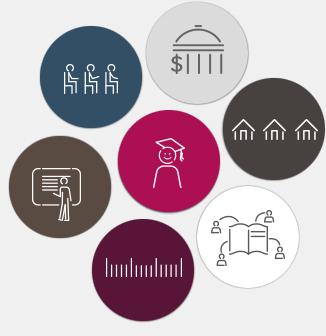summer@ future class descriptions (click for details)
2.S03 Special Subject: Dynamics I (New)
Credit cannot also be received for 2.03.
U(Summer)
Prereq: None
6 units (2-0-4)
DATES: 6/9-7/25
L01 - Tuesdays & Thursday 11-12:30
Room 35-225
R01 / F11 / Room 1-242
R02 / F1 / Room 1-242
R03 / F2 / Room 1-242
R04 / F3 / Room 1-242
Experimental version of 2.03, which offers a combination of online and in-person lectures. See description of 2.03 (below). Licensed for Summer 2014 by the Committee on Curricula as an acceptable alternative to 2.03.
Instructor: S. Mahajan
2.03 Dynamics I
Prereq: None. Coreq: 2.086
U(Fall, Spring; first half of term)
6 units (2-0-4)
Introduction to the dynamics of one and two degree-of-freedom mechanical systems. Kinematics. Force-momentum formulation for particles and rigid bodies. Work-energy concepts. Rotation of rigid bodies, angular momentum, torques and moments of inertia. Newton, Euler equations (direct method in dynamics). Conservation laws in dynamics. Basics of equilibrium, linearization and stability analysis. Includes computational modeling of dynamical systems with applications.
3.S01 Special Subject: Materials Selection and Design of Nanostructured Catalysts for Sustainable Energy
9 units
Pre-req: permission of the instructor
Schedule June 16 – July 31, 2014
Classrooms: E17-139 & 66-025
Schedule: see attachment for reference
Experimental project-based class in which students design materials for novel catalysts by accounting for the technical, economic, and environmental performance of the material(s) incorporated into the catalytic systems. Students work with a series of analytical and computational tools to inform materials design; laboratory sessions focus on synthesis and characterization of the proposed catalyst materials. Designed to help students develop an intuitive understanding of the materials design process. Includes combination of online and in-person lectures.
Limited to 15.
Schedule June 16 – July 31, 2014
Instructors: Elsa Olivetti, Alexie Kolpak and Yuriy Roman
7.S390 (Undergraduate) 7.S930 (Graduate) Special Subject in Biology (Creating Digital Learning Materials for Biology)
Undergrad or Grad, Summer
Prereq: None
6 units (P/D/F)
June 9 - August 1
Mondays and Thursdays: 2:30 - 5 PM
Room 68-121
Undergraduates should register for this course as 7.S390 Special Subject in Biology for Undergraduates.
Graduate students can register for this course as 7.S930 Special Subject in Biology for Graduate Students.
This course is a student-driven, discovery-based iterative project with workshop-like lecture meetings. Students will use existing digital and traditional content to identify a scientific misconception, outline a lesson plan to address the misconception, apply the best teaching practices to implement the lesson plan, select the best medium (or one of the best) for translating that lesson plan into a digital format, present both the lesson and design plan to instructors for approval and feedback, implement an iterative design process including regular feedback from the instructors and peers on the design and redesigns, and evaluate other students’ work through a system of peer review. Designed to improve students’ scientific communication skills and provide experience in communicating through a digital format. Enrollment limited.
Instructors: M.E. Wiltrout, N. Schafheimer, S. Thornton
No required or recommended textbooks.
Degree requirements to which the subject contributes: Unrestricted Electives.
7.S391 (Undergraduate) 7.S931 (Graduate) Special Subject: Quantitative Biology Workshop
Undergrad or Grad, Summer
Prereq: None
3 units (P/D/F)
June 9 - August 1
1.5 in-class hours, 3.5 homework hours
Tuesday 1:30-3 (section 1), Tuesday 3:30-5 (section 2)
Room 68-121
Undergraduates should register for this course as 7.S391 Special Subject in Biology for Undergraduates.
Graduate students can register for this course as 7.S931 Special Subject in Biology for Graduate Students.
In this course, students will use the online content and graded exercises on the MITx 7.QBW course site. Through this course, students will apply quantitative methods to biological problems, familiarize themselves with vocabulary of computation, write Python, MATLAB, and R code to analyze biological data, examine any protein structure in PyMOL, design and carry out genetic experiments through a simulation tool, and determine genetic characteristics and evaluate the results through a chi-squared test. Enrollment limited.
Instructors: M.E. Wiltrout, N. Schafheimer, S. Thornton
No required or recommended textbooks.
Degree requirements to which the subject contributes: Unrestricted Electives.
8.371J Quantum Information Science II
(Same subject as 18.436J, 6.442J)
G(Summer)
Prereq: 2.111 / 8.411 / 18.435 / 6.989 Quantum Computation
12 units (3-0-9) H-Level Grad Credit
DATES: 6/9-8/1
L01 - MWF 10-11:30am
Room 36-372
Examines quantum computation and quantum information. Topics include quantum circuits, quantum Fourier transform and search algorithms, the quantum operations formalism, quantum error correction, stabilizer and Calderbank-Shor-Steans codes, fault tolerant quantum computation, quantum data compression, entanglement, capacity of quantum channels, and proof of the security of quantum cryptography. Prior knowledge of quantum mechanics required.
Instructors: Isaac Chuang
Instructors
Calendar for summer@ future Classes
Start date: Monday, June 9
End date: Friday, August 1


